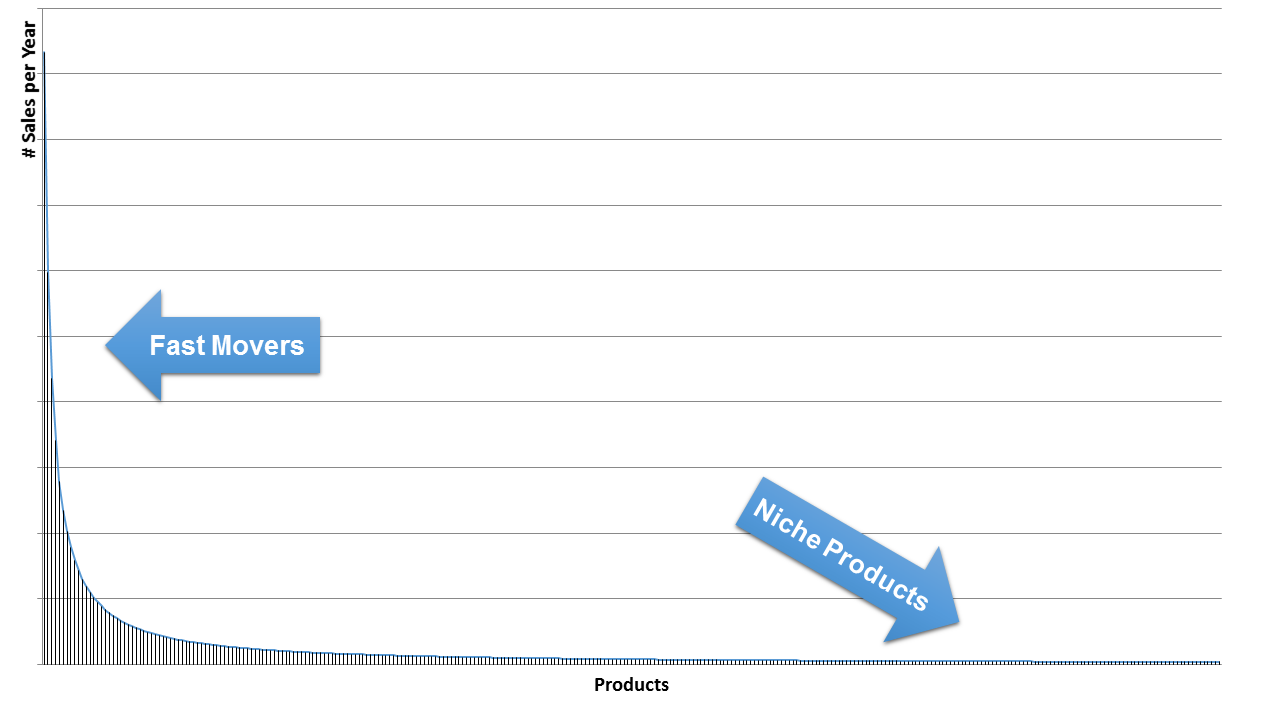The Consequence of High Wages
Successful companies in developed countries with high wages had to concentrate on niches. Most mass production is done in low wage countries.As a result, most European companies struggle with the following pattern:
The long Tail
Fight the Fact
Many companies do not accept tis fact and think, that the 80/20 rule applies. Unfortunately, our experience (based on facts out of live ERP systems) shows, that the rule is more: Only 5% of the products (or variants of products, SKUs) are sold more than once a month. More than 80% of the SKUs are sold only once or twice a year.
Reducing the product range by 10-30% does not change this situation. The problem stays nearly the same, but strategic positioning can be engangered. Often, these companies are famous because of their product range and flexibility. If they reduce the product range, they lose also their strategic advantage.
Accept the Fact and Use It As a Strategic Advantage
Our proposal is: Accept the fact and look for Economy of Scale somewhere else: In the processesn and not by reducing the number of SKUs. A good process in this “long tail” situations can handle many different SKUs the same way and reach economy of scale without reducing the number of SKUs delivered to the customer.
A clear management of lead-times and pricing can support this strategy and is very important for this concept.
Product Live Cycle
Of course, products have an end of live and have to be removed regularly. If your products live 8 years in average, 12% of the products have to be removed every year.


